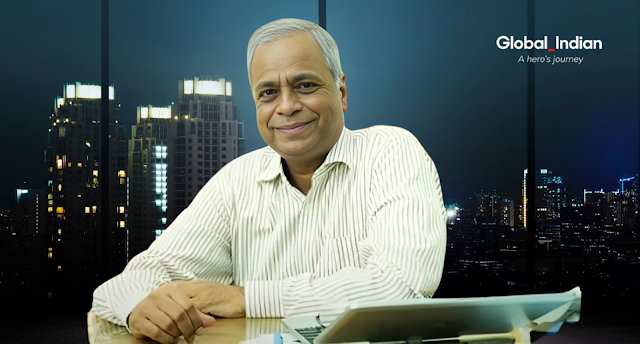Dr. Ashok Jhunjhunwala: Rewiring India’s Innovation Story Through the Country’s First University-Based Research Park
Bridging the Gap Between Academia and Industry:
When Dr.
Jhunjhunwala joined IIT Madras in 1981, he quickly realized that India’s
research institutions and industries operated in silos, with minimal
collaboration. This disconnect meant that Indian companies heavily relied on
imported technologies, which were often expensive and ill-suited for local
needs. Driven by a vision to change this, he conceived the idea of a research
park that would physically and operationally bring together academic
researchers, entrepreneurs, and industry leaders to co-create solutions
tailored for India and beyond.
The IIT Madras Research Park,
established in 2010, stands as a testament to this vision. Situated adjacent to
the IIT Madras campus, the park has grown into a sprawling innovation ecosystem
with over 70 R&D partners, more than 200 startups incubated, and 1,300+
patents filed. It fosters an environment where cutting-edge research meets
market realities, accelerating product development in sectors such as telecom,
energy, electric vehicles, healthcare, and banking.
Championing Affordable and Scalable Innovation:
Dr. Jhunjhunwala’s impact goes
beyond institutional frameworks. His pioneering work in wireless communication
technologies, especially the development of the corDECT Wireless Local Loop in
the 1990s, played a crucial role in reducing telecom infrastructure costs and
expanding connectivity across India. This innovation was instrumental in
democratizing access to telephony and internet services, earning him the Padma
Shri award in 2002.
In recent years, his focus has
expanded to sustainable technologies like electric vehicles and solar energy.
Through the IITMRP ecosystem, he has nurtured startups working on battery
swapping, zero-effluent lithium-ion battery recycling, and solar rooftop
solutions—technologies that address India’s energy security and environmental
challenges while making clean technology affordable and accessible.
Nurturing Entrepreneurship and Deep-Tech Startups:
Under Dr. Jhunjhunwala’s
stewardship, the IIT Madras Research Park has incubated over 240 companies,
many of which are deep-tech startups pushing the boundaries of innovation. His
leadership has earned him the title of “Dronacharya” of entrepreneurship by The
Indus Entrepreneurs (TiE), recognizing his role in mentoring and nurturing
India’s startup ecosystem.
The park’s unique model combines
academic rigor with industry pragmatism, providing startups access to
state-of-the-art labs, mentorship from IIT faculty, and collaboration
opportunities with established corporations. This synergy has created a vibrant
innovation ecosystem that not only drives economic growth but also addresses
pressing national and global challenges.
A Legacy of Leadership and National Impact:
Dr. Jhunjhunwala’s influence
spans academia, government, and industry. He has served on the boards of major
public and private organizations, including State Bank of India, Bharat
Electronics Ltd, Tata Communications, and Mahindra Electric. His advisory roles
to various government ministries have shaped policies that promote research,
innovation, and entrepreneurship in India.
His numerous awards—Padma Shri,
Shanti Swarup Bhatnagar Award, Vikram Sarabhai Research Award, and
others—reflect his stature as a luminary in India’s science and technology
landscape. Beyond accolades, his enduring legacy lies in creating an innovation
ecosystem that empowers India to solve its unique challenges through homegrown
technology and entrepreneurial spirit.
Conclusion:
Dr. Ashok Jhunjhunwala’s
visionary leadership in establishing the IIT Madras Research Park has
fundamentally rewired India’s innovation story. By bridging the gap between
academia and industry, nurturing startups, and championing affordable
technology, he has created a dynamic platform that continues to propel India’s
technological self-reliance and global competitiveness. His work exemplifies
how visionary leadership, collaborative ecosystems, and a commitment to social
impact can transform a nation’s innovation trajectory. Find more Global Indian stories.




Comments
Post a Comment